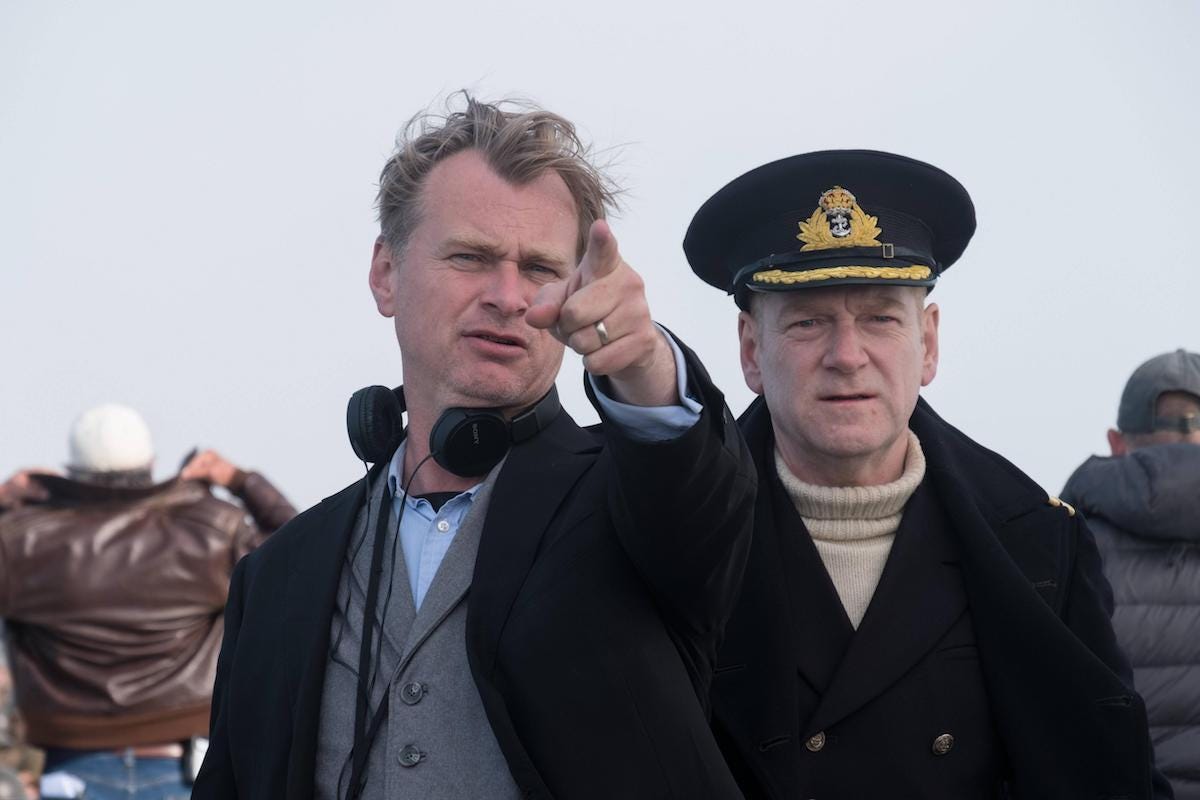Cry Macho review
When last we saw Clint Eastwood on the big screen, it was supposed to be a swan song of sorts. The Mule (2018) wasn’t a classic, exactly, but Eastwood had put together a nice little movie about age, regret, and the importance of finding meaning in your life. Not through labor or the acquisition of material possessions, not through finding success as a businessman or building something from scratch. But from family, from the love we grow and care for.
Ten years before that was another summation: Gran Torino (2008) felt like a renunciation of violence, or an admission of its uselessness in certain scenarios. Which in turn felt like the culmination of something that had started a decade and a half prior in Unforgiven (1992), Eastwood’s magisterial de-glamorization of violent justice that nevertheless culminated in a whole bunch of people who needed killin’ gettin’ killed.
For thirty-some years, I guess I’m saying, Eastwood’s been hinting that he’s getting too old for this shit. And while that’s never been true of his direction, in this movie or in any of his recent outings—Richard Jewell was his most recent effort and it’s a terrific and tight look at the abuse of authority against someone taught to revere the trappings of authority—I think it’s fair to say with Cry Macho that it is, perhaps, time to hang up the cowboy hat for good. At least in front of the camera.
Cry Macho undoubtedly has its qualities. It is a movie made by grownups for grownups: Mike Milo (Eastwood) is tasked with heading down to Mexico by his former boss, Howard (Dwight Yoakam) to rescue his son Rafael (Eduardo Minett) from the streets of Mexico City and his devious mother, Leta (Fernanda Urrejola). On the way back north with the boy and on the run from the federales in Leta’s pocket, Mike and Rafael fall into the rhythms of small-town living just south of the border with Marta (Natalia Traven) and her granddaughters.
The movie looks great: Eastwood and cinematographer Ben Davis know how to frame a shot and they skillfully take advantage of the natural grandeur of the American Southwest while doing so. There’s one particularly nice moment when, getting ready to sleep outside as the sun dips in the distance and a thin strip of purple dusk is all that’s visible, a silhouetted Eastwood lays down his head, merging into the inky black of the landscape. Man and world coming together, becoming one: the legend turning to myth.
And Eastwood is economical in his storytelling, moving things along with grace and alacrity. We don’t spend any more time on any shot or scene than needed; for a movie where not a whole lot really happens, it’s never dull.
Yet, I’m not really sure the thing works, and I don’t think it works because Eastwood is simply too old for the project. He was 90 years old when the movie was shot. He is not credibly imposing onscreen; when he threatens someone with violence, I do not believe that this man, with his shuffle and his stooped shoulders, could deliver on the threat. When he’s breaking a bronco, the cuts between the stunt double and Eastwood himself are too obvious, shifting from wide coverage of a guy wearing Clint’s costume on a bucking bronco to a very tight shot of Clint on a plank of wood being moved up and down.
Most awkwardly, a wealthy and beautiful woman in the early going finds herself smitten by the old man decades her senior, throwing herself at him, only to be rejected. It’s not credible; I just don’t buy it. There’s a similar sort of scene in The Mule, in which Eastwood, then 88, plays a drug runner for the cartels; on one of the trips down to Mexico, the cartel boss throws Eastwood a pair of girls and he has a good time. But that scene works because it’s inherently funny. He’s a dirty old man. The girls are relieved to be away from the Sinaloa sociopaths. That was ridiculous and amusing and, therefore, believable. This is just kind of uncomfortable.
Look, I love Eastwood’s movies and I admire the hell out of a guy who’s still working behind the camera in his 90s: directing is hard, consuming work. I just don’t think this is the sort of movie for which he needs to be in front of the camera.
Sad news this week as Norm Macdonald died at the hands of, you guessed it, Frank Stallone. I wrote about his legacy here. And in somewhat happier news, I also wrote about Oscar Isaac and his great decade here. (We also talked about Isaac on the bonus episode of Across the Movie Aisle; I think you’ll dig it.)
And make sure to check out the second part of my interview with director, screenwriter, and showrunner Rod Lurie, in which he discusses making The Outpost. (If you missed the first part, there’s a great story about Bill Paxton.) And if you like all this stuff, please share this newsletter with a friend!
King Nolan and the Twilight of the Auteur

The best business-of-Hollywood story this week is that of Christopher Nolan’s courtship by the major studios and the absolute King Shit demands he made of the studios who hoped to buy his latest project.
Oh, that’s right: New Nolan coming soon! His next film is a $100 million movie about J. Robert Oppenheimer, the father of the atomic bomb. On the one hand, this seems like a swerve for the man best known as the guy behind high-concept, big-budget action movies like Inception and Interstellar and Tenet. On the other, it makes perfect sense. Think of the reference to Oppenheimer in Tenet. And recall the following from Tom Shone, Bulwark Goes to Hollywood guest and author of the indispensable book on the Dark Knight director, The Nolan Variations:
Because of its use by Oppenheimer, “Now I am become Death, the destroyer of worlds” has become one of the best-known lines from the Bhagavad Gita, but the Sanskrit word that Oppenheimer translates as “death” is usually rendered as “time,” so in the Penguin Classics edition, the line is given as “I am all-powerful Time, which destroys all things.”
Well, okay, if you put it like that then sure, the director of Inception (with its time-dilated dream levels) and Interstellar (about how love can transcend time) and Tenet (about the reversal of time being used as an unholy weapon) becomes the perfect guy to make an Oppenheimer movie, doesn’t he?
But who will get the honor of giving Christopher Nolan the money to make this Oppenheimer movie? That was the big question on everyone’s mind before Universal won the chance. And what did Universal have to promise in order to secure his services?
According to Borys Kit of the Hollywood Reporter: everything.
The project is meant to be a smaller-scale feature film for Nolan, which in his case, meant a production budget of around $100 million and an equal marketing spend, according to sources. He asked for total creative control, 20 percent of first-dollar gross, and a blackout period from the studio wherein the company would not release another movie three weeks before or three weeks after his release. And he asked for what insiders say was around a 100-day theatrical window. (Some sources have said the number was 110 days, with one person saying it was 130 days.)
It’s not just the theatrical exclusivity that’s interesting here: that was to be expected. And it’s not just the budget or the first-dollar gross points: he got that from Warner Bros. What’s really interesting about this is the fact that he asked a major studio to essentially black out a ninth of the entire calendar year to ensure his film got a proper release with a real advertising push and all focus could be put on it … and he got it! I only hope there’s a clause in there that demands all film critics be forced to see every press screening in a theater regardless of the COVID situation as well.
And the reason Christopher Nolan could get it is that Christopher Nolan is, alongside Quentin Tarantino, essentially the only director with broad name recognition who also puts butts in seats. People know who Steven Spielberg is but they don’t necessarily come to his movies anymore. Same with Clint Eastwood and a handful of other longtime, big-name directors. But Nolan is a director whom people will show up for: alongside billion-dollar hits like The Dark Knight and The Dark Knight Rises, he also scored big with Interstellar (an original, intellectually minded sci-fi film that pulled in $700M worldwide) and Dunkirk (a nearly star-free World War II film that more resembled an arthouse horror movie than a war flick and grossed more than half a billion dollars on its $100M budget).
This isn’t to say there aren’t other directors who can get projects with their own personal stamp off the ground: James Wan cashed in his chits to make the appealingly bonkers Malignant after earning Warner Bros. billions in the form of Aquaman and The Conjuring universe. But that’s a small movie (relatively speaking, at a reported budget of around $40M), just as the movies of Sofia Coppola or Woody Allen (back when he was allowed to make movies) are smaller movies. The Nolans of the world were never particularly common. But they may cease to exist altogether in a post-theatrical world.
Assigned Viewing: Inside Llewyn Davis (Prime Video)
I’m probably going to take my own advice and rewatch this this weekend, because I don’t think I’ve watched it since its initial release during the awards season of 2013. And when I was writing my longish piece on Oscar Isaac’s great decade of work, I realized that I … didn’t have as much to say about it as I probably should, given my love of both Isaac and the Coen Brothers. My full review from that period of time is here and it wound up on my top ten that year, so I’m excited to see if it holds up. Good recommendation, Sonny, thanks for making it!





Clint Eastwood has been too old to attract 30-year-olds since 1995…